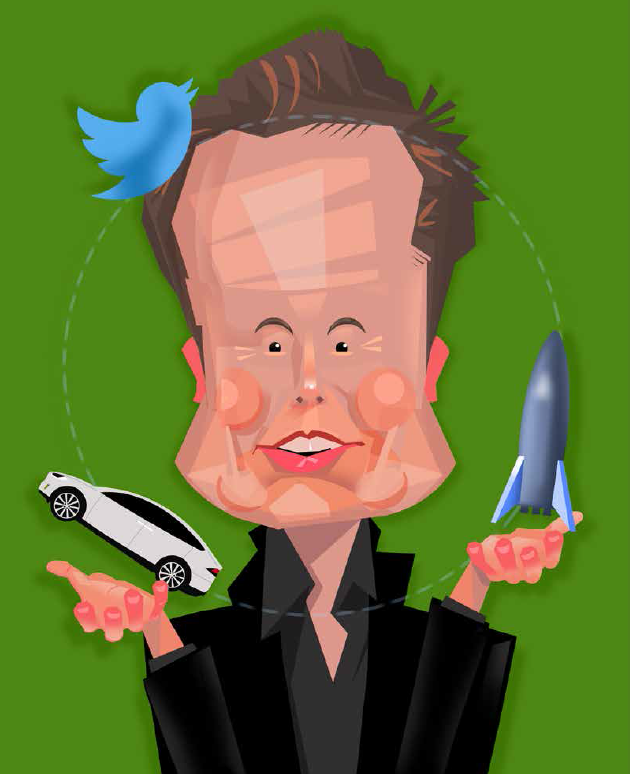
By Tuhin Chaturvedi
The spring of 2022 will always be remembered as the time when Elon Musk, the CEO of Tesla and SpaceX, made a rather audacious bid to acquire Twitter. However, as spring turned to summer and summer turned to fall, the positivity around the deal gave way to rancor and accusations. In July 2022, via a spectacular volte-face, Musk withdrew his bid for the company, prompting Twitter to threaten to sue him to enforce the agreement. The two sides eventually came to an agreement, and on Oct. 27, Musk announced he had completed his takeover of the company.
Beneath all the noise accompanying this deal, a question that arises is whether the acquisition of Twitter was a smart decision for Musk. An enduring finding in corporate strategy research and practice is that companies cannot diversify indiscriminately. Diversified expansion may be justified if there are common resources a corporate parent can share across businesses, but having too many different businesses under a single corporate umbrella is likely to lead to poor performance. This is because each business under that umbrella has its own set of idiosyncratic resources and needs to be managed with a unique skill set.
With his acquisition of Twitter, Musk expands his businesses into a realm hitherto unknown to him and his managers — social media. What does an executive who leads a company that manufactures electric vehicles — and who is still struggling to address the challenges of that industry — know about managing a largely unprofitable social media company? Even in the best of circumstances, it would have been a questionable decision for two primary reasons.
First, recent developments in Tesla’s competitive environment suggest Musk should pay more attention to the company’s corporate well-being than to expansion. The slowdown in China due to supply chain-related issues arising from the COVID-19 lockdown, the persistent inquiries into technical issues with its vehicles, delays in launching new models, and the strides made by legacy automobile companies such as General Motors and Ford towards developing electric vehicles suggest that Tesla is not out of the woods in terms of operational challenges. Why Musk would want to stretch his managerial bandwidth by acquiring Twitter is unclear.
If he wishes to change the social media landscape in terms of promoting free speech and addressing the bots and fake accounts that have plagued the platform, a more potent alternative would have been to secure a position on Twitter’s board and attempt to implement change via that avenue as opposed to paying a massive sum for the company and then attempting to integrate it under his holdings.
Secondly, integrating Twitter is likely to be an even greater challenge given that it is a technology-based business. In a recent paper I co-authored with John Prescott, we found that the post-acquisition integration of technology companies is a complex and nuanced challenge. The acquirer often has to improvise on the integration decision in terms of which resources to assimilate within its organizational structure and which ones to leave autonomous in order to preserve their potential to innovate. Given the popularity and subscriber base of Twitter — not to mention the proliferation of bots and fake news — it is safe to say that Twitter’s post-acquisition integration challenges would be large enough to tax the corporate resources and managerial attention of any acquirer. For Musk, it likely means a suboptimal integration followed by a massive bout of value destruction that could compromise not only Tesla’s ability to disrupt the automotive landscape and SpaceX’s ability to disrupt space flight but also Twitter’s status as a social media behemoth.
In conclusion, it will be interesting to see how Musk manages to juggle the twin responsibilities of managing the industry-specific vagaries accosting Tesla with the social and organizational challenges of integrating Twitter. If he can manage this twin act, it may well become an example of effective corporate strategy that goes against established conventional wisdom.
Tuhin Chaturvedi is an assistant professor of management.

